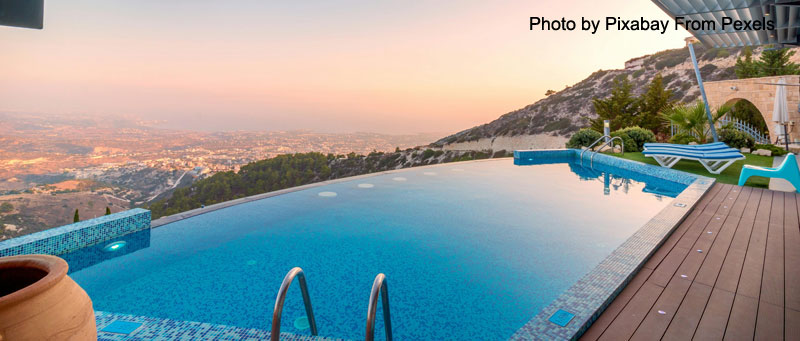With the beautiful weather of California comes a desire to relax after a hard day in the pool. But if your pool is not receiving the proper maintenance, then you could be at risk of having your pool equipment malfunction, resulting in costly repairs. One of the most essential pieces of equipment in your pool is its filters. Let’s dive into how often you should clean your pool filters and how regular pool cleaning can help your filters work more effectively.
What Are Pool Filters For?
Pool filters serve a vital role in maintaining the cleanliness and clarity of your swimming pool water. Here is how they work:
- Filtration – When water is pumped through the filter system, it passes through a filtering medium, such as sand, diatomaceous earth, or cartridge. This medium captures the pool water’s dirt, debris, algae, and other impurities.
- Removal of particles – The filter traps both visible and invisible particles, ensuring the water remains clear and free from contaminants.
- Pressure and flow – The water is forced under pressure through the filter, thus allowing the impurities to get trapped. Clean water then flows back into the pool.
- Maintenance – Regular pool maintenance is essential to keep your pool filters functioning optimally. Depending on the type of filter, you may need to backwash, clean cartridges, or replace the filter media periodically.
Pool filters play a crucial role in maintaining water quality, ensuring a refreshing and enjoyable environment for swimming. However, knowing how often your filters need to be maintained will depend on the filters you use.
What Are the Different Types of Pool Filters?
There are three main types of pool filters commonly used in swimming pools. These include:
Cartridge filters – This filter uses a replaceable cartridge made of pleated fabric to trap dirt and debris. The advantage of these cartridges is they are low maintenance, easy to install, and provide good filtration. However, the cartridges can be expensive to replace and have a limited lifespan, which makes them ideal for above-ground and small in-ground pools.
Sand filters – These filters use a bed of fine sand to trap particles. Sand filters’ advantages are affordability, low maintenance, and their effectiveness with larger pools. However, the filtering is not as fine as cartridge or DE filters, and regular backwashing is required as the sand will need cleaning from time to time. These filters are ideal for in-ground pools regardless of size.
Diatomaceous earth (DE) filters – This filter uses a fine powder from fossilized diatoms (tiny aquatic organisms) to filter the water. The advantages are that these filters provide the finest filtration, have longer intervals between cleaning, and are ideal for removing algae. However, some disadvantages include the upfront expense and complex maintenance. These filters are ideal for in-ground pools where water clarity is crucial.
The choice of your pool filters will depend on your pool size, budget, and maintenance preferences. Each type has pros and cons, so it is important to consider your pool’s needs before selecting a filter.
How Often Should You Clean Your Pool Filters?
Your pool filters help keep your pool water clean by removing impurities. When you have a regular pool cleaning schedule, you can extend the life of your pool filters. However, even with regular pool cleaning, your filters will need maintenance. The frequency of cleaning your pool filters depends on your filter type and the amount of debris in your pool. Here are some guidelines to keep in mind:
Sand filters – Backwash them every 1 to 4 weeks and have them deep cleaned once a year.
Cartridge filters – Clean the filter every 2 -6 weeks and deep clean it once a year.
DE filters – Backwash every 1-3 months and dismantle and deep clean twice a year.
These are general recommendations. You can also see if your filter needs to be cleaned by checking your filter pressure gauge. Clean your filter if the gauge reads 8 PSI or more above normal operating pressure. If there are changes to the water quality or you notice damage to your pool filter, then clean it sooner.
Regular maintenance can help extend the life of your pool and your pool filters, thus creating an enjoyable swimming experience throughout the summer. Contact us today to schedule a pool cleaning, which includes checking the condition of your pool filters.
Mirage Pool Services specializes in pool maintenance, equipment repairs and replacement, chlorine washes, draining pools, and pool startups in the Moreno Valley and Riverside, California areas.

